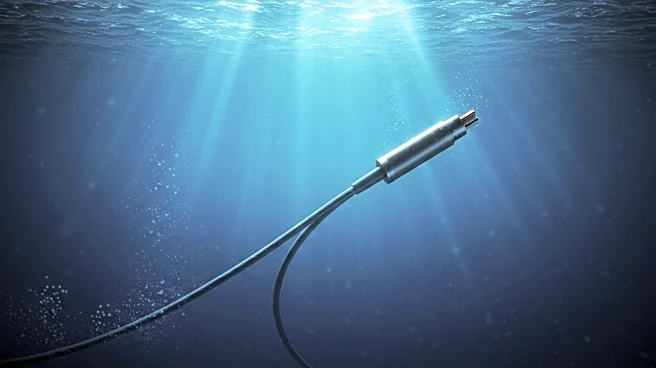What's Happening?
The Federal Communications Commission (FCC) has updated its rules regarding subsea cables, focusing on national security concerns. The new regulations create a presumption of denial for cable-landing license applications from entities controlled by foreign adversaries. Additionally, the use of equipment listed on the FCC's Covered List is banned in submarine cable systems connected to the U.S. The FCC aims to address strategic vulnerabilities in global communications infrastructure without imposing extra-territorial bans. The agency is also seeking public comments on proposals to enhance resilience, including incentives for U.S.-flagged repair vessels and promoting trusted technology abroad.
Why It's Important?
The FCC's actions are significant in the context of national security, as they aim to protect critical communications infrastructure from foreign threats. By restricting access to foreign adversaries, the FCC seeks to prevent potential cyber and physical threats to submarine cables. This decision may impact international relations, as foreign companies face challenges in accessing U.S. markets. The move also reflects broader efforts to enhance cybersecurity and protect infrastructure from foreign influence. The changes could influence the global submarine cable industry, prompting other countries to adopt similar measures.
What's Next?
The FCC is seeking public comments on complementary proposals to enhance resilience, including incentives for using U.S.-flagged repair vessels and promoting trusted technology abroad. These measures aim to streamline approval processes while maintaining security standards. As the FCC continues to update its regulations, stakeholders in the submarine cable industry may need to adapt to new security requirements. The agency's actions could lead to reciprocal measures from other countries, affecting global competition in the cable industry.









